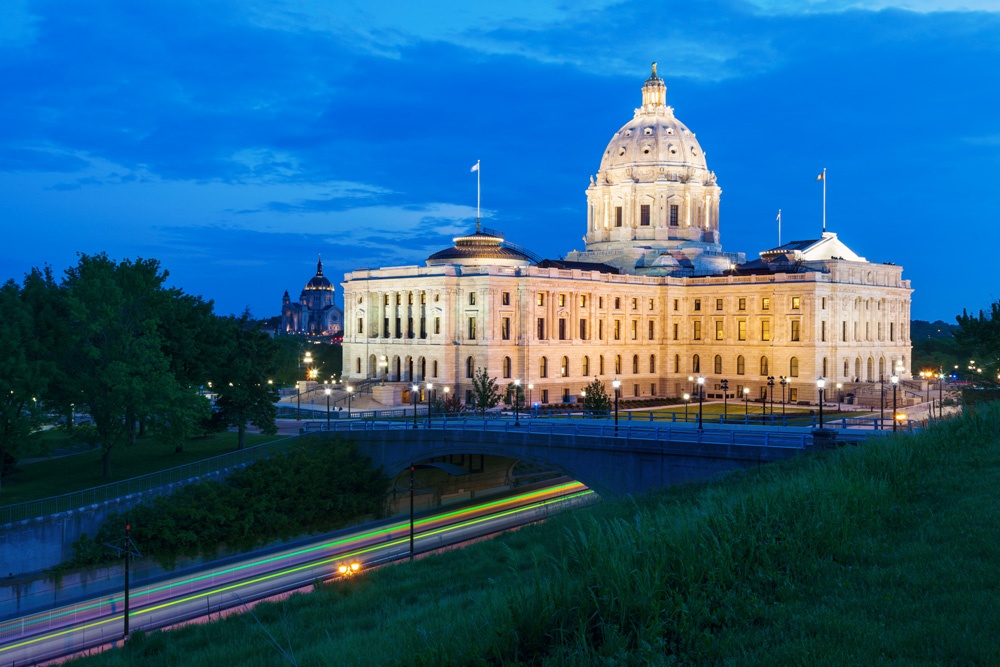Conservation Minnesota's 2023 Legislative Priorities
As Minnesota’s 2024 legislative session gets underway, we are preparing to build on last year’s historic wins by advancing more impactful legislation to protect the Minnesota we love. Though this session will be shorter, we are still putting our support behind bills to reduce packaging waste, decrease emissions from the transportation sector, and more to make Minnesota a healthier and thriving place to live. In addition to the bills outlined below, we’ll also advocate for conservation and infrastructure funding.
Packaging Waste and Cost Reduction Act
More than half of the waste stream in Minnesota currently ends up buried in a landfill or burned at facilities like the Hennepin Energy Recovery Center (HERC). Through increased use of recyclable and compostable packaging, we can divert a large amount of our packaging waste back into the supply chain. The Packaging Waste and Cost Reduction Act would require companies to use entirely compostable or recyclable packaging by 2032. This would significantly reduce packaging materials from ending up in trash bins and improve water and air quality in communities around waste facilities.
Clean Transportation Standard
The transportation sector is currently Minnesota’s largest source of climate pollution. The Governor’s Clean Transportation Standard Working Group—of which Conservation Minnesota was a member—released its final report to the Minnesota Legislature in early 2024. Several key recommendations include expanding the electric vehicle fleet, increasing innovative low-carbon liquid fuel options, and rewarding practices that reduce carbon emissions. Now, legislation implementing these recommendations is needed to reduce transportation emissions and significantly improve air quality across Minnesota, particularly in communities near transportation corridors.
Statewide Recycling Refund
A Deposit Return System (DRS) or “recycling refund” is critical to preventing recyclable bottles and cans from ending up in a landfill. In other states with refund programs, recycling rates are substantially higher than in Minnesota. Adding a small deposit to beverage containers will both incentivize recycling, allow community groups to benefit from deposit returns, and assist manufacturers in retrieving recyclable materials from the waste stream.
Lead Service Lines
Thousands of families across the state still receive their drinking water through lead pipes, putting them at increased health risks in their own homes. Removing and replacing lead lines is often cost-prohibitive for homeowners, leaving families with unsafe drinking water. While some federal and state funding has recently been made available, we need to keep dedicating resources annually to meet the statewide goal of removing all lead service lines across the state over the next 10 years.
Elk Restoration
Restoring a wild elk population in northeast Minnesota is a vital component of conserving the natural and indigenous history of the state. While an initial restoration bill passed last session, the Department of Natural Resources (DNR) will continue to partner with the Fond du Lac Band to see this restoration through, and Conservation Minnesota will continue to support policies to make this restoration a reality.
